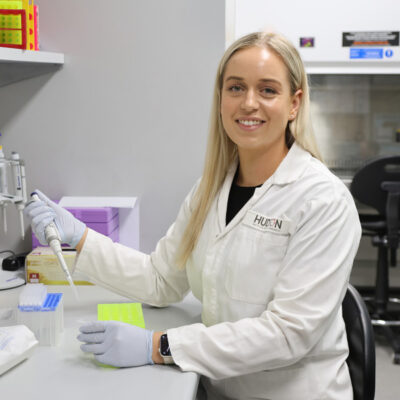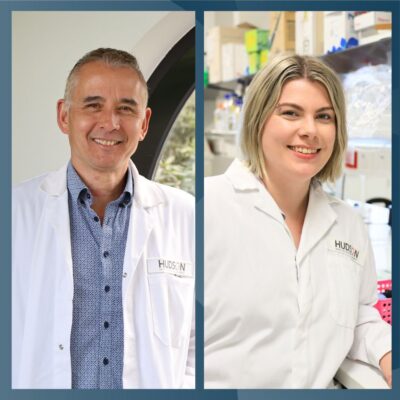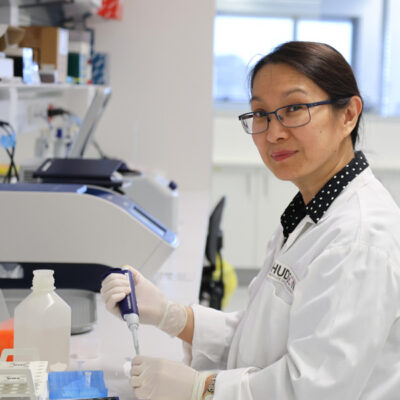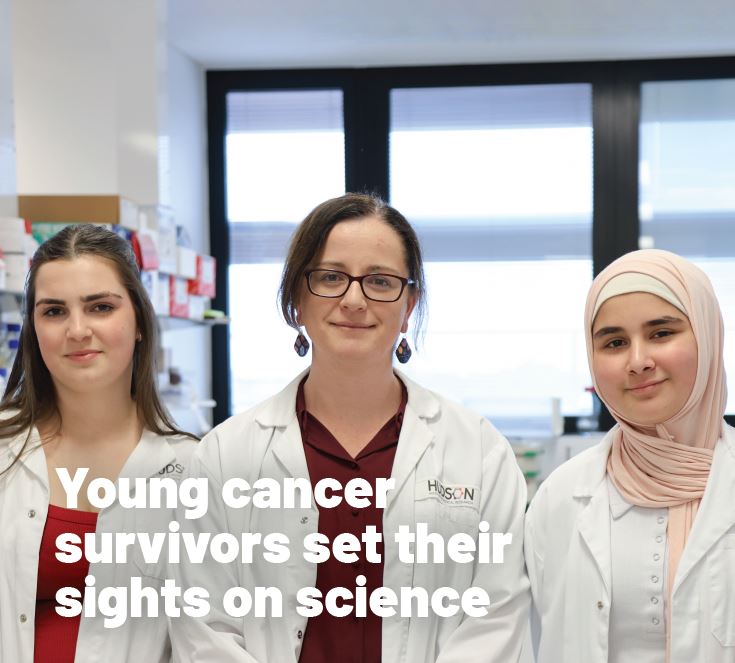Ovarian cancer test breakthrough: new hope
By Rob Clancy, staff writer
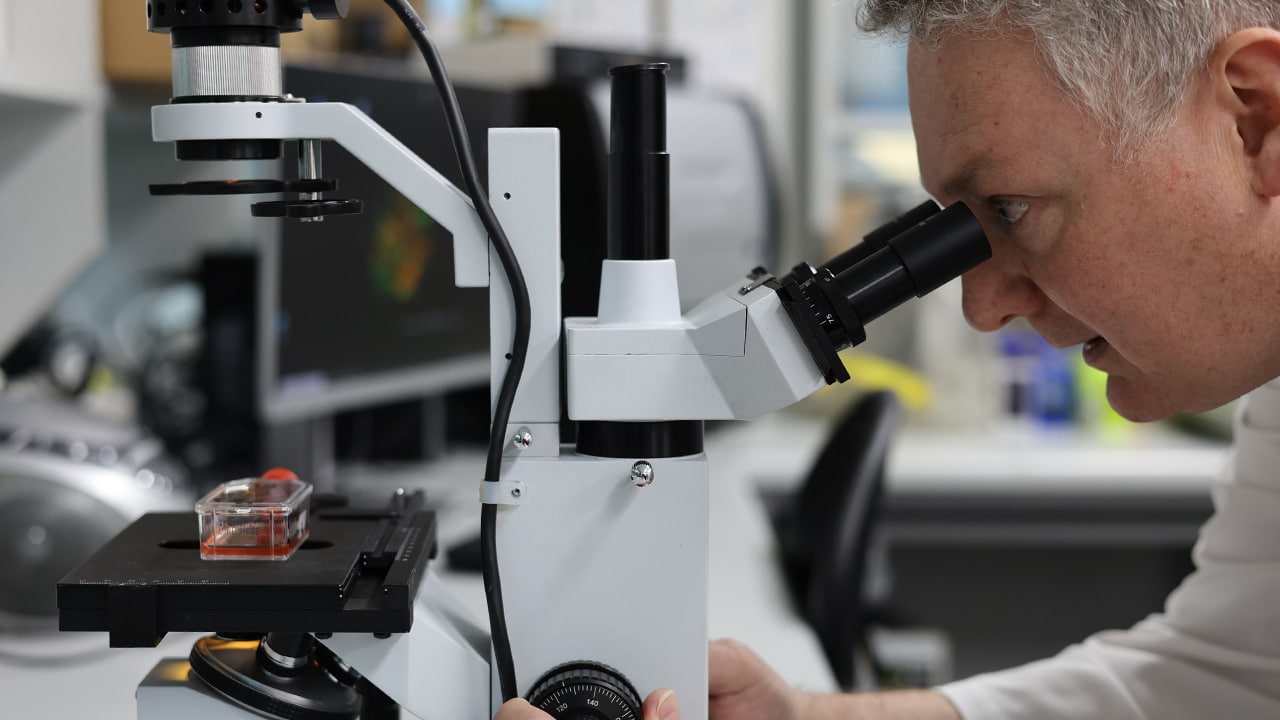
In medical research, the path from laboratory bench to patient bedside is usually a long one. And when it comes to breakthroughs in specific testing for ovarian cancer, it is a path that no-one has yet navigated successfully.
But that could be about to change, thanks to some generous donors, a lot of hard work and a great deal of persistence, here at Hudson Institute.
Ovarian cancer diagnosis gap
There is currently no accurate and reliable early detection test for ovarian cancer — the most lethal of all gynaecological cancers.
Because the symptoms are often vague, ovarian cancers can be indistinguishable from common, non-cancerous diseases, so invasive surgery to remove the ovaries remains the only way to definitively diagnose the presence of malignant disease.
However, the 80–90 per cent of women who have this surgery do not have ovarian cancer, meaning they have to endure unnecessary anxiety and trauma from the surgical procedure due to the lack of accurate early diagnostic technology.
Hudson Institute aims to change that.
Ovarian cancer facts
- Diagnosis usually occurs when the disease is advanced
- Accurate diagnosis involves invasive surgery and often the removal of ovaries
- 49 per cent of those diagnosed will only live for five years
- This survival rate has not changed in half a century.
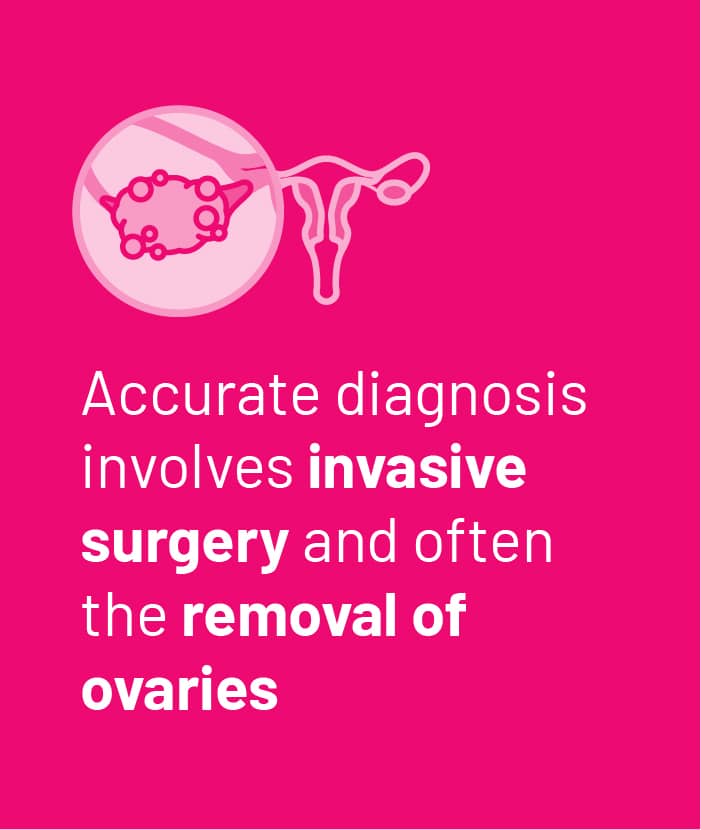
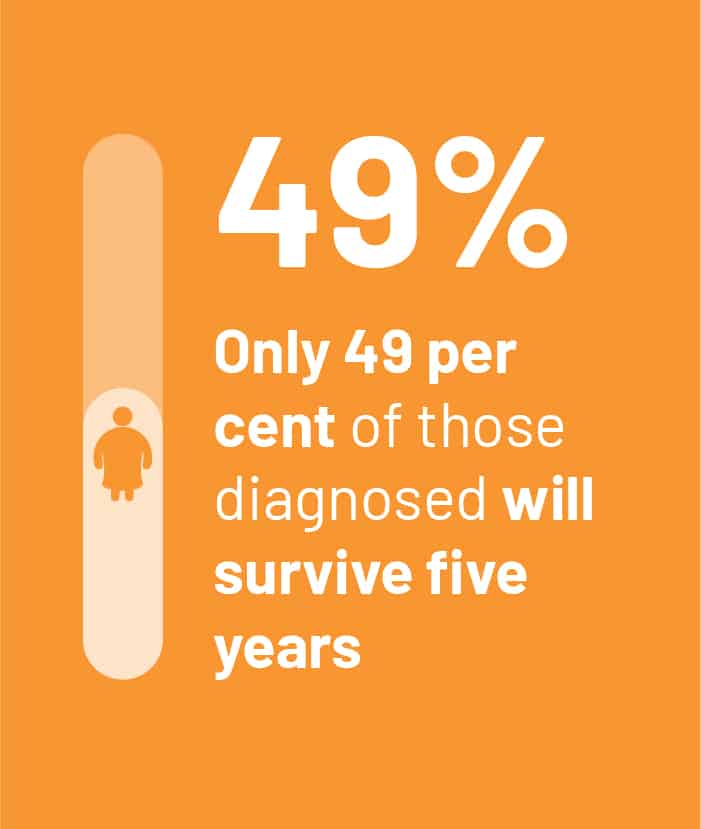
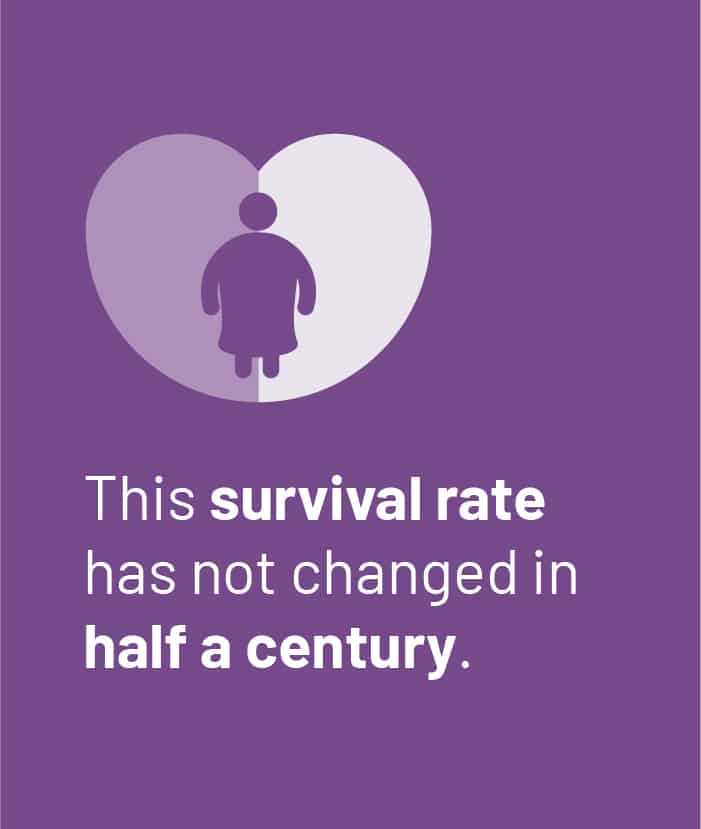
New accurate ovarian cancer testing technology
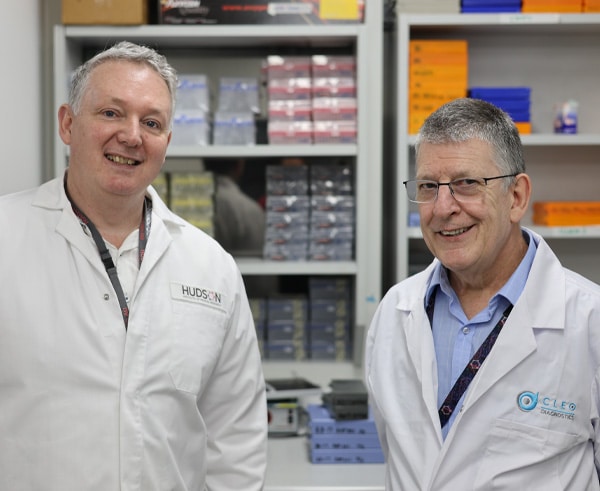
Using a novel biomarker identified by three Hudson Institute researchers, Cleo Diagnostics is working to develop more accurate ovarian cancer testing, starting with a triage test, and hopefully culminating with the holy grail: a simple early detection blood test.
The triage test aims to prevent the unnecessary surgery that is now so common, meaning patients will know before surgery whether their condition is malignant or benign, allowing them to be treated appropriately.
In many cases it will also mean retaining their fertility.
And the benefits go far beyond detecting ovarian cancers. They include
- Better care for women with non-cancerous tumours
- Cost savings in the health care system (government, hospital, health insurance)
- More efficient allocation of priority surgical beds
- Community benefits associated with reduced hospital stays.
The generosity of donors
Hudson Institute is grateful for the long-term support from the Ovarian Cancer Research Foundation (OCRF), which has nurtured this research from the laboratory bench through to the commercialisation phase.
Without the generosity of our donors, the essential discovery science would never happen in the first place. Only through the ongoing support and commitment of the community will we be able to progress this ovarian cancer test research further.

In this article
About Hudson Institute
Hudson Institute’ s research programs deliver in three areas of medical need – inflammation, cancer, women’s and newborn health. More
Hudson News
Get the inside view on discoveries and patient stories
“Thank you Hudson Institute researchers. Your work brings such hope to all women with ovarian cancer knowing that potentially women in the future won't have to go through what we have!”

